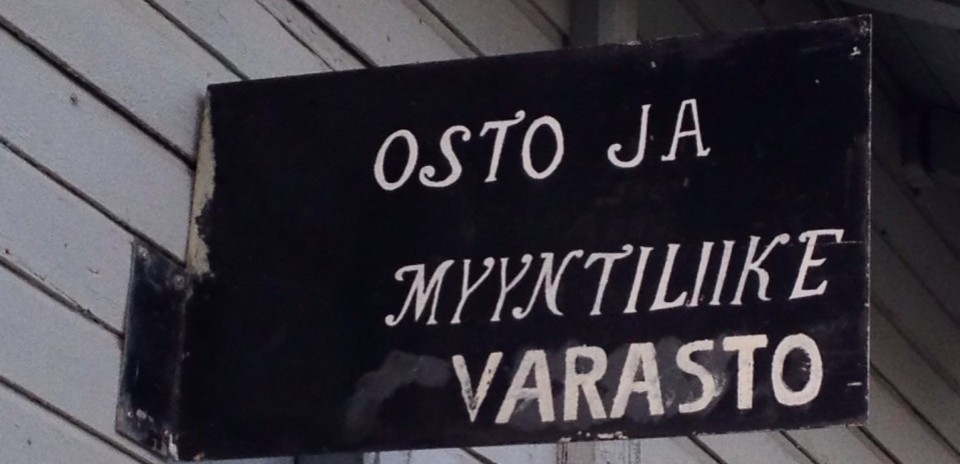Avainsanat
Cognitive processes, collaborative learning, computer supported collaborative learning, Learning process, Metacognition
In most cases, a distinction used in metacognition separates metacognitive knowledge from skills (Veenman, Bernadette & Afflerbach 2006). Metacognitive skills include e.g. persons’ declarative knowledge about the interaction between him/herself, task and learning problem solving strategies. Metacognitive knowledge in its’ part refers to person’s knowledge for regulating his/her problem-solving and learning activities. According to Veenman, Bernadette & Afflerbach (ibid.), most conceptualizations of metacognition have in common that they refer metacognition to be higher-order cognition about cognition. In other words metacognition is explicit knowledge (see e.g. Nonaka 1994) about person’s skills to regulate one’s learning. Consequently, in order to acquire metacognitive skills one should be able to critically reflect one’s learning processes and, when necessary, be able to transform one’s learning procedures. This distinction is probably simplified, because it’s probable that during learning processes a portion of explicit information comes internalized and transforms to tacit knowledge (see Polanyi 1967).

Collaboration without a computer. Pic by Geof Kern, http://www.mymodernmet.com/profiles/blogs/geof-kern-photography
Contemporary research in learning indicates that learners in our postindustrial society need skills to regulate their learning and tools to work collaboratively with other learners (Hurme, Merenluoto & Järvelä 2009). If an individual learner benefits from explicit knowledge about his/hers learning, the same probably goes for collaborative learning as well. According to Hurme, Merenluoto and Järvelä (ibid.) in collaborative learning knowledge is constructed through negotiation and discussion that, in order to make learning effective, requires shared knowledge about learning – socially shared metacognition. Socially shared metacognition requires intentionality, reciprocity and engagement to the other group members and in order to be effective the students participating in collaborative learning need to make their thinking visible (Hurme, Merenluoto & Järvelä, ibid.). A person probably needs to be competent learner and conscious of his/her metacognitive skills in order to be an effective and constructive participant in collaborative learning processes. Otherwise it would not be possible to make his/her thinking visible.
Recent studies in learning sciences (see e.g. Weinberger 2011) indicate that collaborative learning, especially in computer supported learning environments requires high motivational, self-regulatory and metacognitive skills and students seem to benefit from structured facilitation of special learning activities during the learning process. This support can be accomplished through collaboration scripts which can provide learners with specific structures or scaffolds which make imperative for them to make their thinking visible. These collaboration scripts can be hidden so the learners do not necessarily become aware of their existence. Nonetheless, to provide awareness of cognitive processes, metacognition and socially shared metacognition the collaborative scripts should be explicit structures or models that help learners to reflect their actions and activities. Reflection facilitates transformation and makes it possible for learners and groups of learners to scrutinize their perspectives and improve their learning skills.

Script without collaboration. Pic by Dran aka the French Banksy, http://www.mymodernmet.com/profiles/blogs/dran-street-art
I think that the scripts mentioned above could be and should be utilized also in face-to-face learning. This is because traditional learning arrangements have become old-fashioned due to change in society from industrial to postindustrial age. At the same time the postindustrial society is evolving by taking advantage of information and communication technology and consequently we also should support learners to use that technology as a tool for learning. It is obvious that there is a profound change going on in society, work life and production and education needs to adapt to that change. To summarize, we need to learn new ways of learning.
References:
Nonaka, I. (1994) A Dynamic Theory of Organizational Knowledge Creation. Organizational Science, vol. 5, No. 1, February 1994.
Polanyi, Michael (1967) The Tacit Dimension, New York: Anchor Books.
Veenman, M. V. J., Bernadette, H. A. M. & Afflerbach, P. (2006). Metacognition and learning: conceptual and methodological considerations. Metacognition and Learning (2006) 1: 3–14
